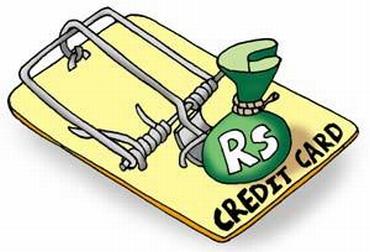 | « Back to article | Print this article |
5 money management tips for the youth
If you are young and confused in money matters, don't worry; help is at hand. We present five money management tips for young investors.
India's 'young' population is the topic of several discussions and debates. As this sizeable chunk of the population starts earning, it gives rise to higher disposable incomes, needs and aspirations. Expectedly, managing money is a natural corollary. However, the youth as a segment has its own set of needs and niceties.
In keeping with the same, we present five money management tips for young investors.
5 money management tips for the youth
1. Say no to lazy money
One of the biggest financial blunders is to leave money idle in a savings bank account. Sure, some banks have capitalised on the liberalised regime to offer higher rates than the norm, but that doesn't justify leaving substantial monies in the bank account.
Instead, you should set aside enough money to meet your monthly expenses say for a 6-month period or thereabouts. In effect, this sum can be used to provide for any contingencies that may arise, and the balance monies should be invested.
If you can take on risk, then investing in equity mutual funds via a systematic investment plan is an option. If you would rather just park monies in an alternative avenue, then liquid funds or ultra-short bond funds can be considered.
Finally, if your risk appetite doesn't permit taking on risks, then bank fixed deposits can be apt for you. Even a combination of the aforementioned options can be considered. While the investment avenues and allocation must be determined based on your risk profile, needs and investment horizon, the key is to make your money work for you.
5 money management tips for the youth
2. Buy a term plan
With age on your side, buying insurance is unlikely to be a priority for you. Nonetheless, the importance of buying insurance cannot be overstated. Start off with a term plan.
A term plan offers insurance in its purest form. Simply put, if an eventuality occurs, then the policyholder's dependents receive the sum assured; however, if the policyholder survives the tenure of the policy, then no pay out is made.
Since the investment component is missing, a term plan is the cheapest form of availing an insurance cover. Furthermore, given that you are young, the premium amount will be lower now rather than later; also, it certainly helps that the premium amount remains unchanged over the tenure of the policy.
Over time, as your needs and obligations change, you can consider adding more policies to your portfolio, but now is as good a time as any, to get started with a term plan.
5 money management tips for the youth
3. Start a PPF account
Public Provident Fund or PPF as it is popularly referred to, makes for an attractive long-term investment avenue. Presently, investments in PPF earn an assured return of 8.8% per annum. Not only is the interest tax-free, investments of upto Rs 100,000 in each financial year are eligible for tax benefits under Section 80C of the Income Tax Act. Additionally, the investments are backed by a sovereign guarantee ensuring the highest degree of safety for both the sum invested and interest.
Recurring investments (on an annual basis) add an element of discipline to the investment process; the latter coupled with a 15-year investment horizon make PPF an ideal avenue for long-term investing. You can use PPF to provide for long-term goals like buying real estate or retirement. PPF's appeal is not restricted to just risk-averse investors. For instance, if you are a risk-taking investor, the PPF account can be apt as the stable, assured return component of your portfolio.
5 money management tips for the youth
4. Use your credit card judiciously
The basic advantages that a credit card offers are common knowledge. However, it is the ancillary benefits that you need to be circumspect about. For instance, it isn't uncommon for credit card companies to offer a cash limit, which entitles you to withdraw money using the card. Card companies will also offer the option to pay a 'minimum amount due' rather than the entire due. Another common feature is to buy gadgets from a retailer who has tied-up with the credit card company; payments can be made using the EMI facility.
However, there is no free lunch in the world of credit cards. Availing the aforementioned facilities comes at a steep price – an exorbitant interest rate. The credit card's terms and conditions will reveal that cash withdrawals attract an interest rate ranging around 2.5 per cent to 3.4 per cent per month.
Furthermore, transaction fees are levied as well. Paying only the 'minimum amount due' or paying for shopping via the EMI facility can be pricey propositions too. Hence, it is prudent to be disciplined and spend only as much as you can afford to pay for at once.
Don't use the credit card for any extraneous purpose.
5 money management tips for the youth
5. Become financially literate
Surprised to read this as a money management tip? Don't be! In India, the investment industry is coming of age. There is a growing breed of investment advisors and financial planners who are equipped to help you manage your finances. You would do well to engage the services of a competent and experienced advisor. That being said, it will certainly help your cause, if you are involved in the process as well -- be it evaluating options or choosing between them. This in turn necessitates that you be financially literate.
There are several books, websites and publications that offer information on investing and personal finance. Invest time and effort to educate yourself. The intention is not to become an expert; instead, you should have enough knowledge to be able to make informed decisions. Let's not forget that making informed decisions is the first step towards achieving financial nirvana.






